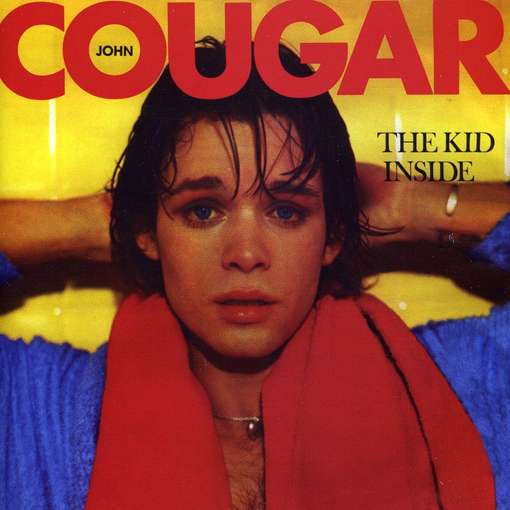
The Kid Inside (1977)

1. Kid Inside
2. Take What You Want
3. Cheap Shot
4. Sidewalks and Streetlights
5. R. Gang
6. American Son
7. Gearhead
8. Young Genocides
9. Too Young to Love
10.Survive
By the time The Kid Inside was finally released worldwide in 1983 (it was made six years prior), John Mellencamp—still billing himself as John Cougar—had already broken through with American Fool, which spawned two hit singles and made him a household name. That success likely explains why this earlier recording, shelved for six years, was dusted off and issued to the public. But make no mistake: this is not the sound of a rising star. It’s the sound of an artist still trying to figure out who he was and a record label who didn't care about long-term effects.
Originally recorded in 1977 as the follow-up to Mellencamp’s debut (The Chestnut Street Incident), the album was deemed unreleasable by the label at the time. In retrospect, it’s not hard to see why. While Mellencamp had clearly developed some confidence since his first effort, The Kid Inside still feels like a transitional piece—more self-assured in sound, but no more compelling in substance.
To his credit, Mellencamp wrote all the material himself, and the music carries a tone and vocal delivery that clearly point toward the artist he would become. The performances are raw but authentic, and he sounds like... well, John Mellencamp. But the songs themselves rarely rise above mediocrity. They strain for significance and often miss. The production is flat, and the arrangements lack distinction, making much of the record blur into one long, indistinct blend of mid-tempo rock.
The one moment that stands out is Too Young to Live, Too Late to Die, a moody, melancholic piece that actually hints at the emotional depth Mellencamp would eventually tap into more successfully. Unfortunately, it's stretched well past its limits—clocking in at over seven minutes and ultimately wearing out its welcome.
More than anything, The Kid Inside feels like a draft. It’s a document of an artist on the verge of finding his footing but not quite there. It lacks the narrative bite, the social awareness, and the sonic muscle that would define Mellencamp’s breakout albums in the years to come.
There’s no shame in growing pains. But this one is best understood as a footnote rather than a foundation.
Go back to the main page
Go To Next Review